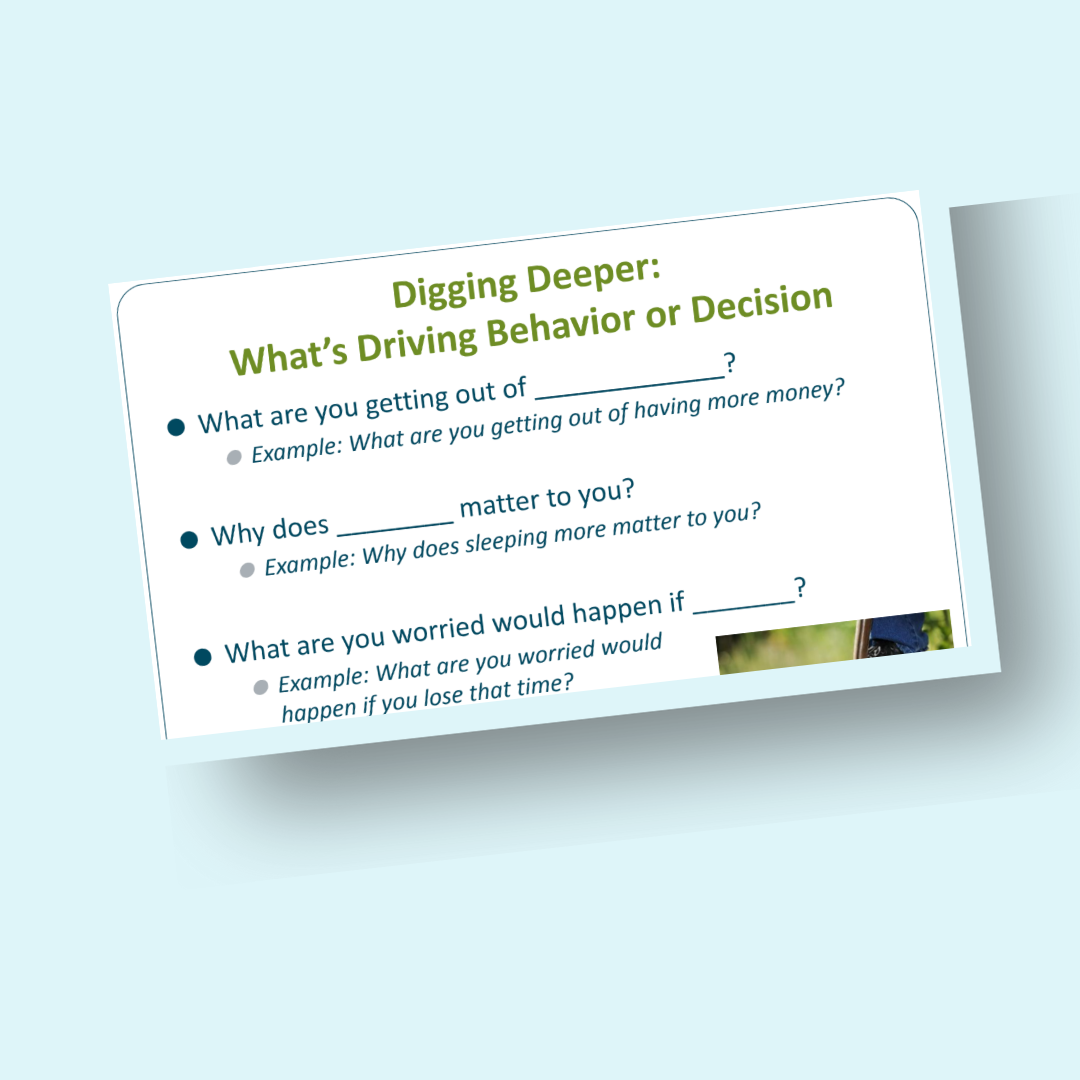
Three question prompts that help determine what is driving an action or decision.

We're all hardwired for wellbeing, and therefore are constantly weighing tradeoffs and talking about them.

This collection of slides and exercises highlight how confirmation bias shows up.
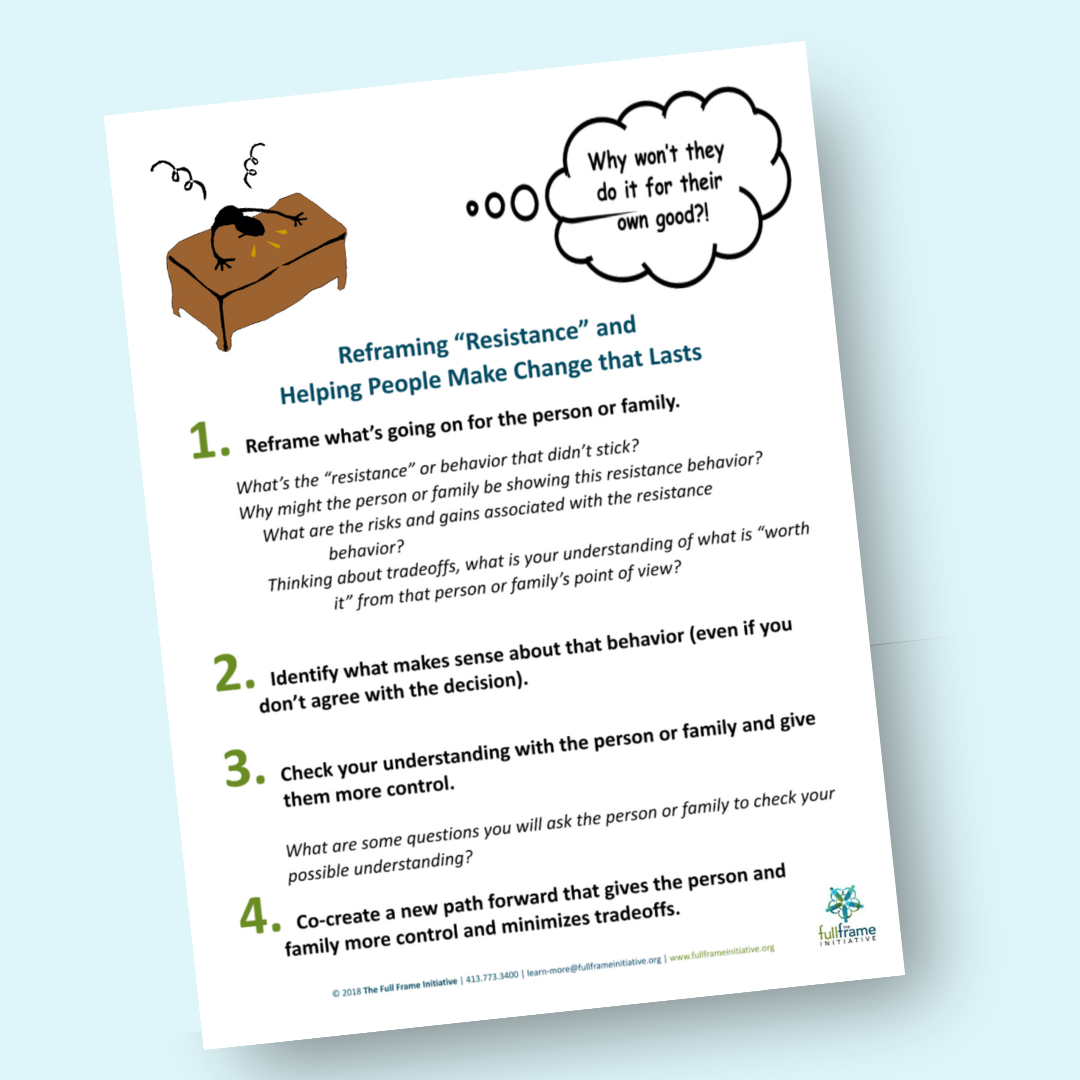
This cheat sheet links the understanding of resistance as weighing tradeoffs and being driven by wellbeing.
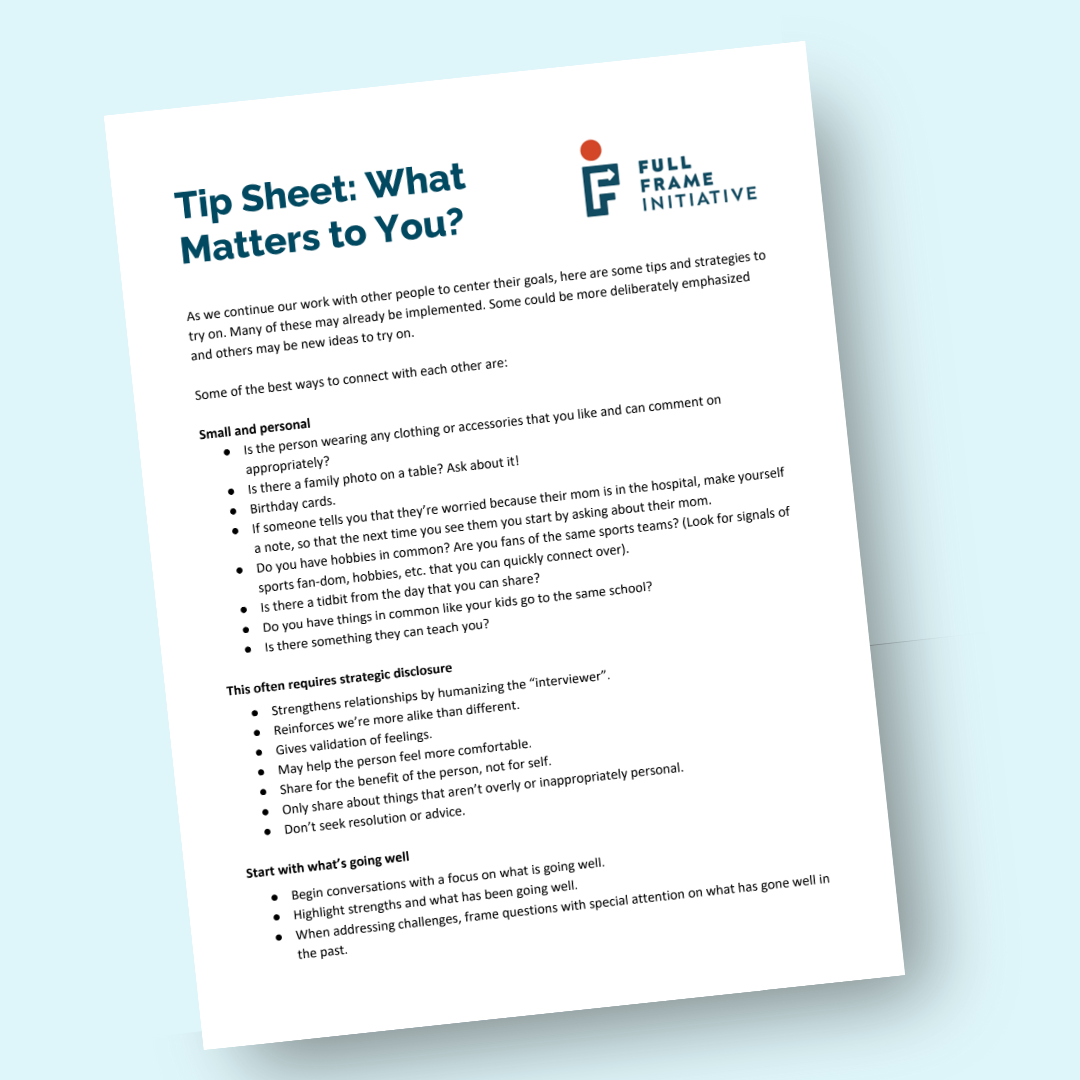
When we engage people to better understand their drivers for wellbeing, it is important to create rapport.
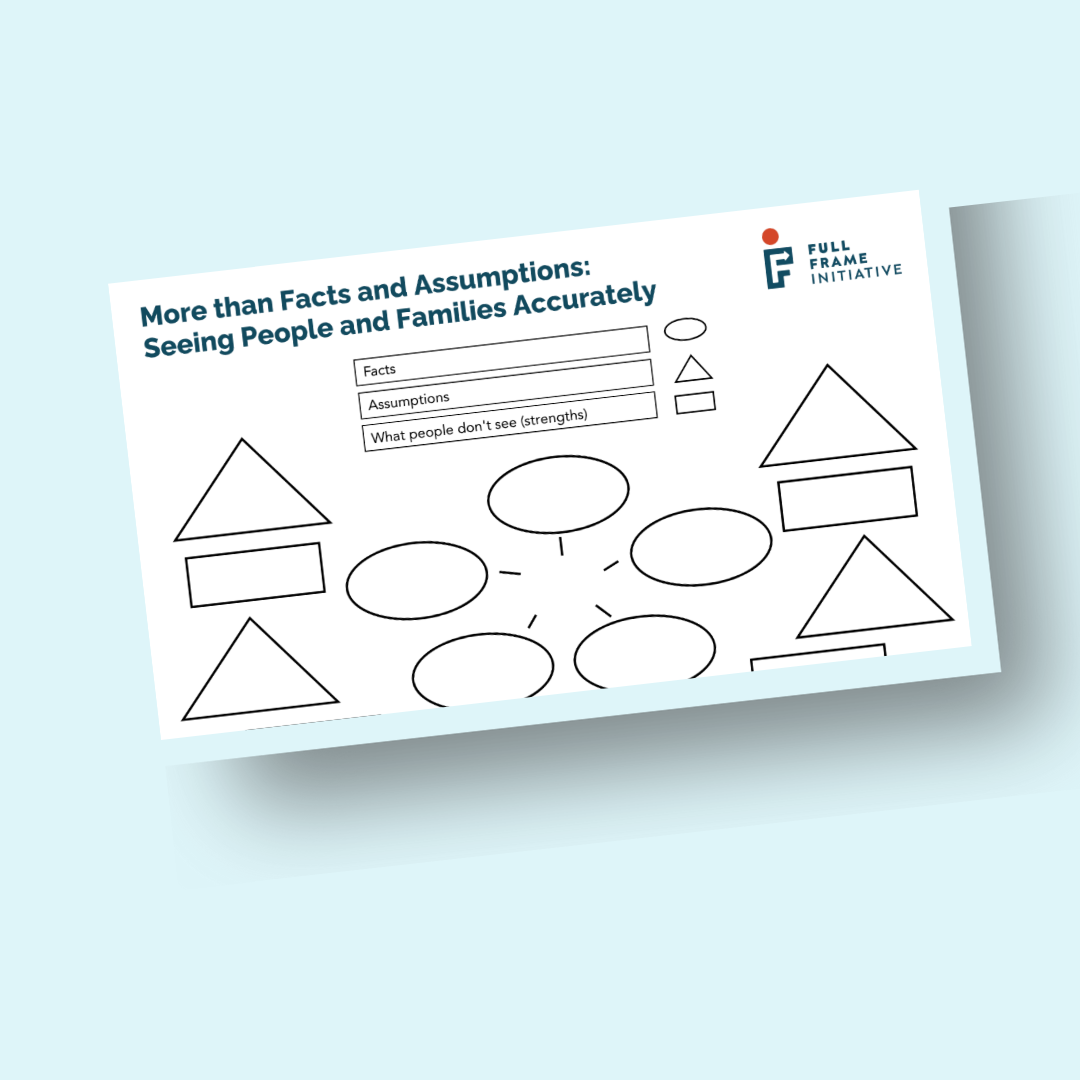
This exercise and facilitator guide can help you outline facts and assumptions we make about someone.
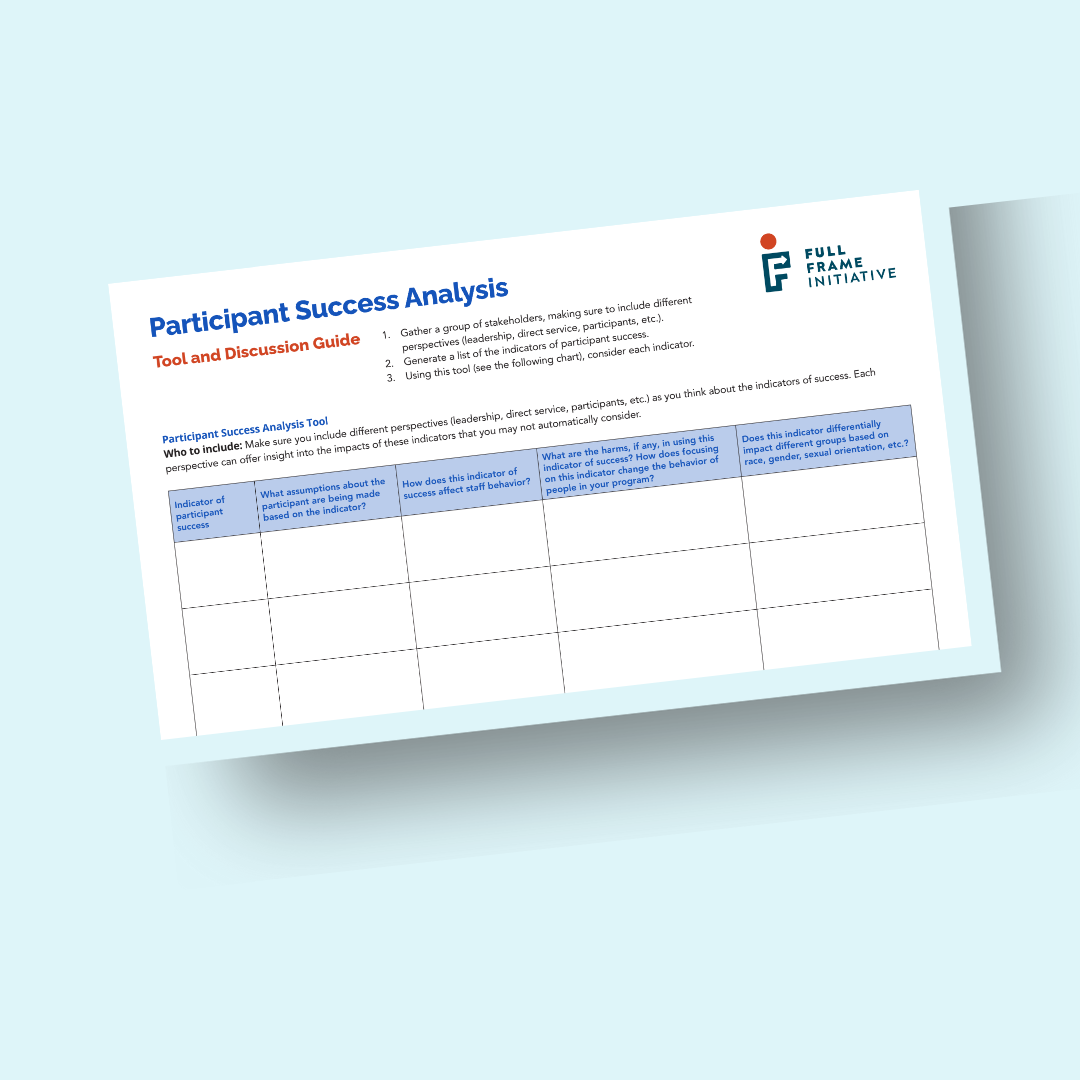
This tool provides a list of questions to consider when analyzing data and indicators of success for program participants.
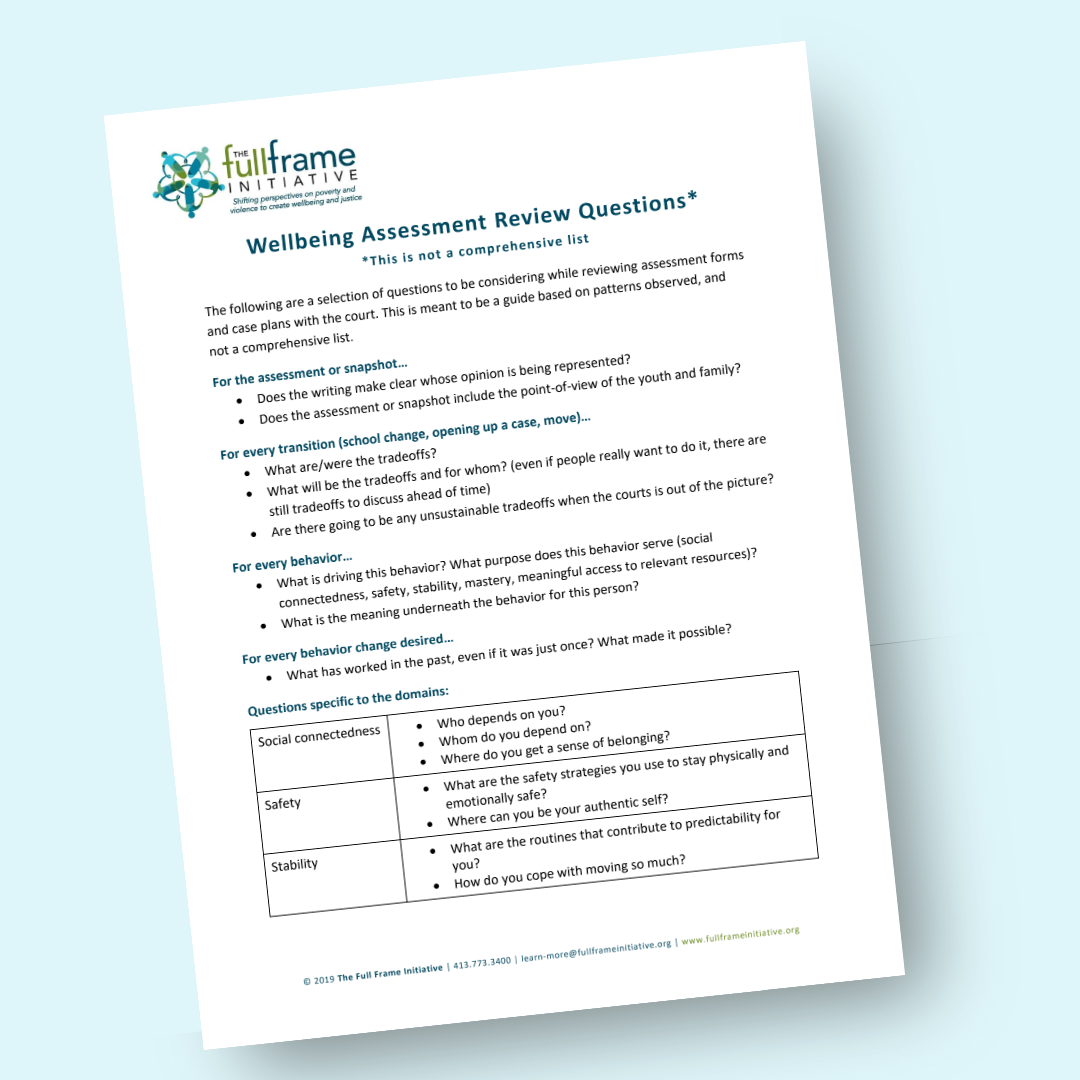
When supervisors review paperwork, here's how to reinforce a wellbeing framework.

This tool and exercise help disrupt instinctive but inaccurate assumptions, supporting more accurate and empathetic perceptions of people and families.
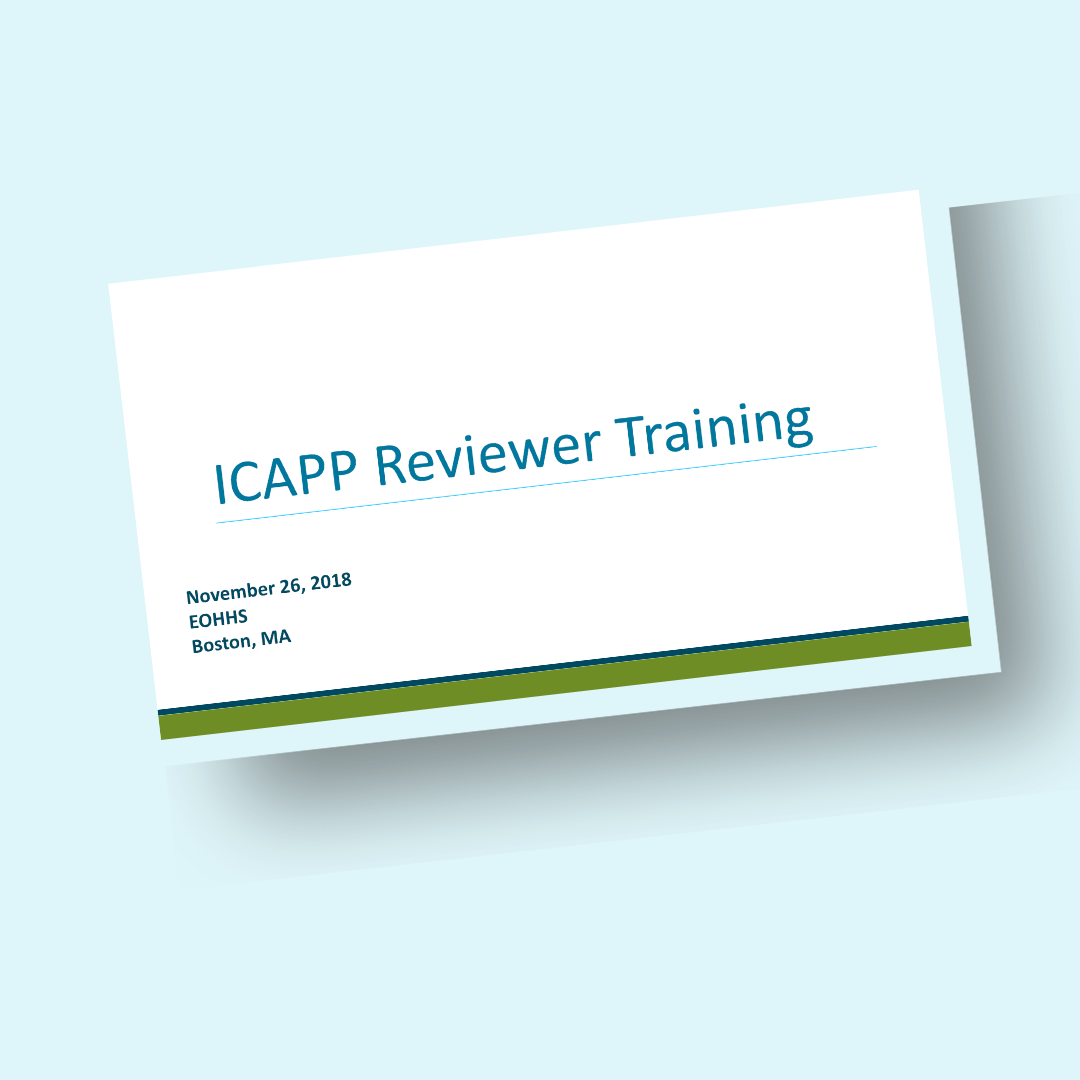
This training will help procurement professionals understand wellbeing concepts and leverage them in their process‚ whether they are writing applications or reviewing them.
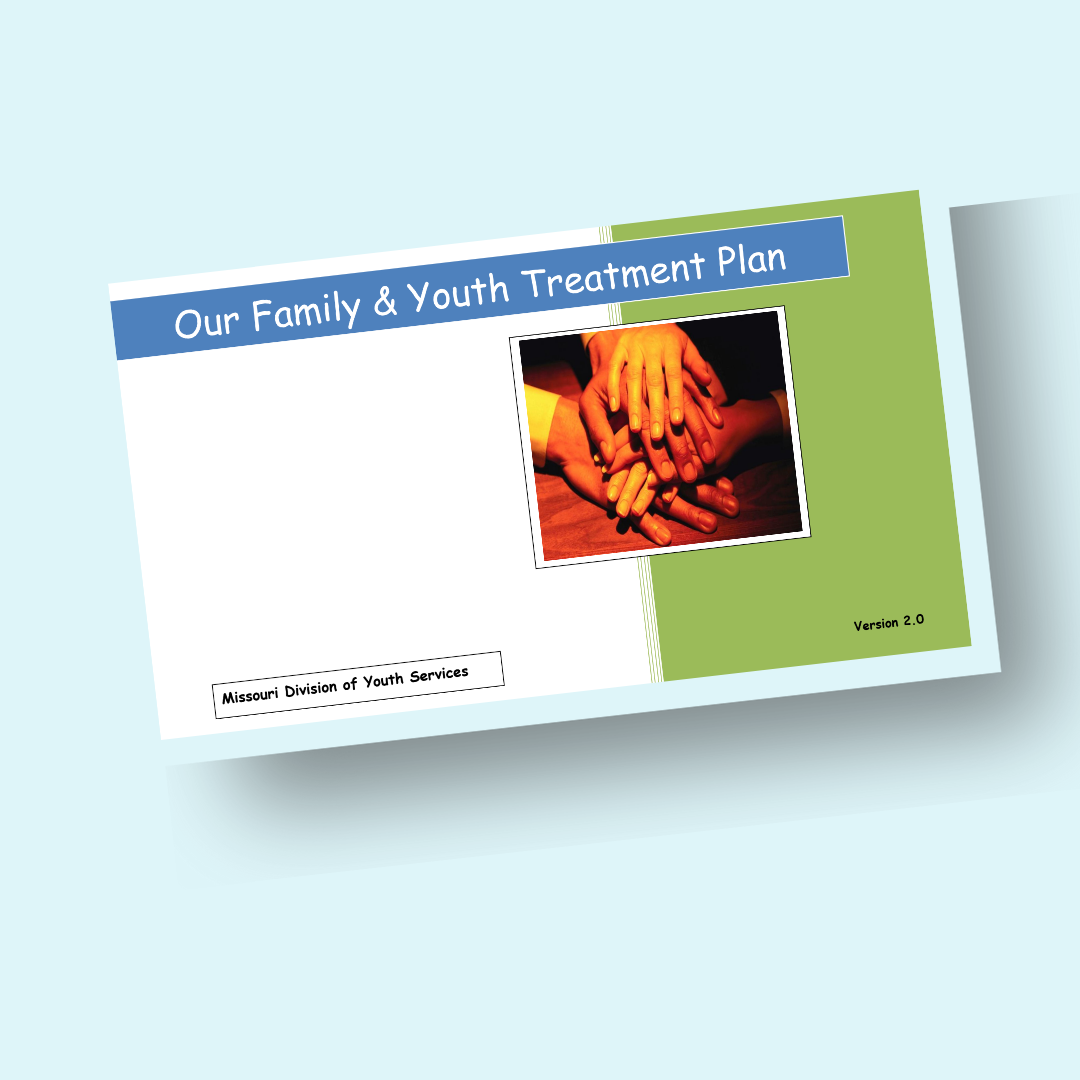
This worksheet can be used to support families and caregivers to support youth interacting with the juvenile justice system.
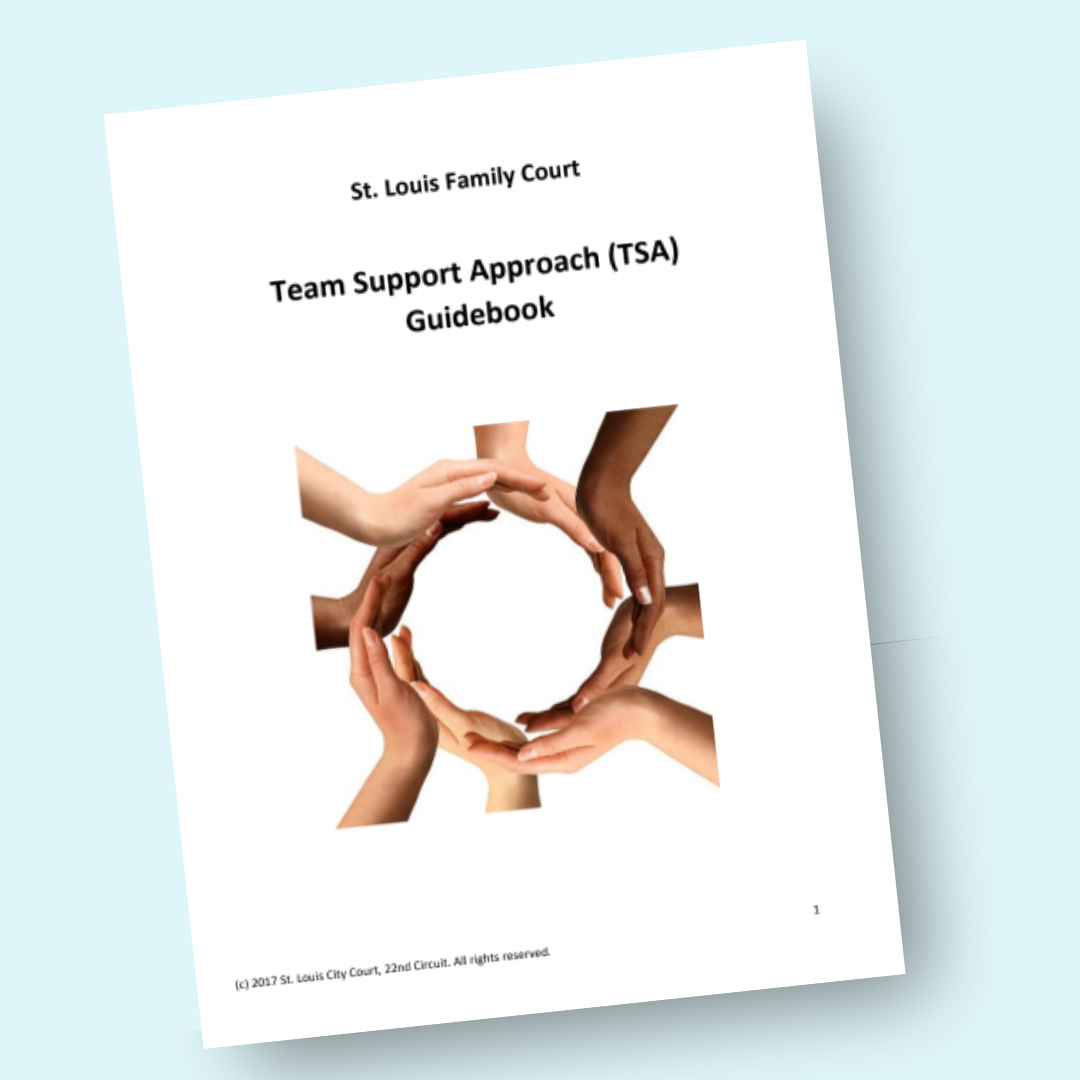
This guide helps key individuals around a youth interacting with the juvenile justice system discuss the youth's strengths and needs, identify and provide resources, and make strengths-based plans to increase the youth's access to wellbeing.